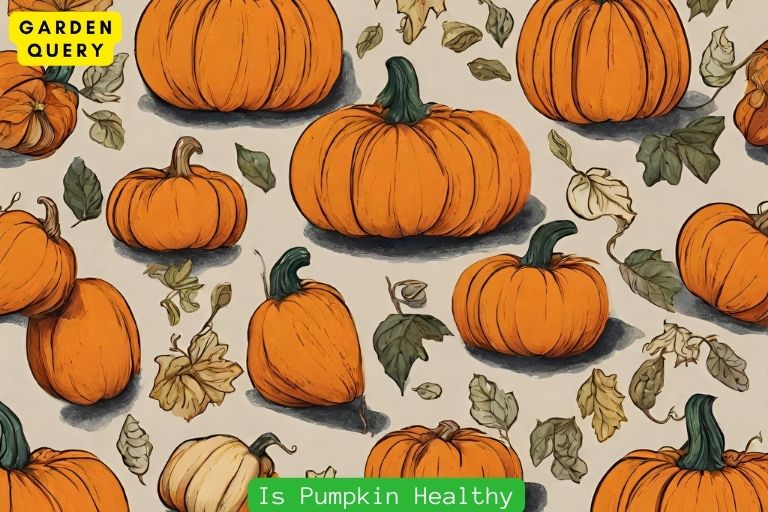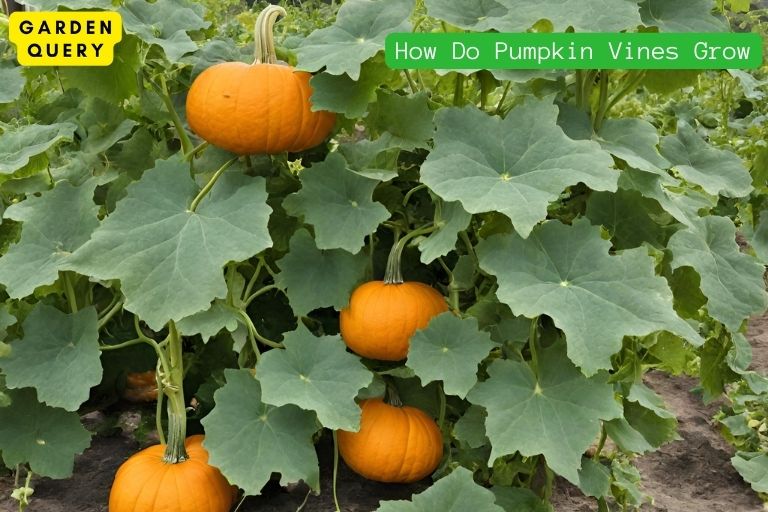Is Pumpkin Healthy? Mystery Unveiled!
Nutritional Profile of Pumpkin
When it comes to the nutritional benefits of pumpkin, you’ll be glad to know that it is a powerhouse of essential nutrients. Let’s take a closer look at its nutritional profile.
First and foremost, pumpkin is low in calories, making it a great addition to any healthy diet. A one-cup serving of cooked pumpkin contains only around 49 calories. This makes it an excellent choice for those looking to manage their weight or maintain a healthy weight.
Pumpkin is also packed with fiber, with each cup providing about 3 grams. Fiber is essential for digestive health and can help regulate bowel movements and prevent constipation. Additionally, a diet rich in fiber has been associated with a reduced risk of heart disease, stroke, and certain types of cancer.

One of the standout nutrients in pumpkin is vitamin A. Just one cup of cooked pumpkin contains a whopping 245% of the recommended daily intake of vitamin A. This powerful antioxidant plays a crucial role in maintaining healthy vision, supporting a strong immune system, and promoting cell growth and differentiation.
Pumpkin is also a good source of vitamin C, with a one-cup serving providing around 19% of the recommended daily intake. Vitamin C is known for its role in boosting the immune system and promoting collagen production, which helps maintain healthy skin and joints.
Furthermore, pumpkin is rich in potassium, with about 394 milligrams per cup. Potassium is essential for maintaining proper heart and muscle function, regulating blood pressure, and supporting overall cardiovascular health.
In addition to these essential nutrients, pumpkin contains several other beneficial compounds. It is a great source of beta-carotene, which is converted into vitamin A in the body. It also contains antioxidants like lutein and zeaxanthin, which are beneficial for eye health and may help reduce the risk of age-related macular degeneration.
When it comes to incorporating pumpkin into your diet, there are numerous options. You can enjoy it in savory dishes like soups, stews, and roasted vegetables, or use it as a key ingredient in sweet treats like pies, muffins, and smoothies.
To summarize, pumpkin is not only a delicious fall staple but also a highly nutritious food. Its low calorie and high fiber content make it an excellent choice for weight management, while its abundance of vitamins and antioxidants offer various health benefits. So, next time you see a pumpkin, don’t hesitate to include it in your meals and reap its nutritional rewards.
Health Benefits
Pumpkins not only make for great fall decorations and delicious treats but also offer numerous health benefits. Here are some of the reasons why incorporating pumpkin into your diet can contribute to your overall well-being.
- Nutrient Powerhouse: Pumpkins are packed with essential nutrients, including vitamins A, C, and E, and minerals like potassium and magnesium. These nutrients play a crucial role in supporting your immune system, maintaining healthy skin, and promoting proper bodily functions.
- Rich in Antioxidants: The bright orange color of pumpkins is due to the presence of beta-carotene, a powerful antioxidant. Beta-carotene helps protect your cells from damage caused by free radicals and may reduce the risk of chronic diseases like heart disease and certain types of cancer.
- Weight Management: Pumpkin is low in calories and high in fiber, making it a great addition to a weight-loss or weight-management plan. The fiber content helps you feel fuller for longer, reducing the likelihood of overeating and aiding in weight control.
- Eye Health: Vitamin A, found abundantly in pumpkins, is crucial for good vision. It promotes healthy eyesight and may lower the risk of age-related macular degeneration, which can lead to vision loss in older adults.
- Heart Health: The potassium content in pumpkins helps regulate blood pressure and maintain a healthy heart. Furthermore, the fiber and antioxidants present in pumpkins contribute to lower cholesterol levels, reducing the risk of heart disease.
- Healthy Digestion: The fiber content in pumpkins supports a healthy digestive system. It promotes regular bowel movements, prevents constipation, and supports the growth of beneficial gut bacteria.
- Post-Exercise Recovery: The high potassium content in pumpkins aids in muscle recovery after exercise. Potassium helps replenish electrolytes lost during physical activity, reducing muscle cramps and promoting faster recovery.
- Boosts Mood: Pumpkins contain tryptophan, an essential amino acid that is a precursor to serotonin, a neurotransmitter responsible for regulating mood. Consuming foods rich in tryptophan, like pumpkin, may help improve mood and promote feelings of happiness and well-being.
It’s important to note that the health benefits of pumpkins are most potent when consumed in their natural, unprocessed form. Opt for fresh pumpkin or prepare homemade dishes and desserts using real pumpkin instead of canned options that often contain added sugars and preservatives.
Including pumpkin in your diet can be as simple as adding it to soups, stews, smoothies, or roasted vegetable dishes. Get creative and experiment with different recipes to enjoy the many health benefits this versatile and nutritious vegetable has to offer.
Culinary Uses
When it comes to culinary uses, pumpkin is an incredibly versatile ingredient that can be incorporated into a variety of dishes. Its natural sweetness and creamy texture make it a popular choice in both sweet and savory recipes.
One of the most common culinary uses of pumpkin is in soups and stews. The flesh of the pumpkin can be pureed and added to a simmering pot of vegetables, broth, and spices to create a comforting and flavorful soup. Pumpkin soup is especially popular during the fall and winter months, providing warmth and nourishment on chilly days.
In addition to soups, pumpkin can also be roasted or baked. Roasted pumpkin can be enjoyed as a side dish, simply seasoned with salt, pepper, and a drizzle of olive oil. Baked pumpkin can be used in various recipes such as pumpkin pie, pumpkin bread, and pumpkin muffins, adding a delightful sweetness and moistness to these baked goods.
Furthermore, pumpkin can be used as a base for sauces and dips. When pureed or mashed, it can be transformed into a creamy sauce to be served over pasta or used as a dip for chips and vegetables. This versatility makes pumpkin a great ingredient to experiment with in the kitchen, allowing you to add a unique twist to your favorite recipes.
For those looking for healthier options, pumpkin can be a substitute for high-fat ingredients in certain recipes. For example, pumpkin puree can replace butter or oil in baking recipes, reducing the fat content without sacrificing flavor. It can also be used as a substitute for cream in soups and sauces, providing a creamy consistency without the excess calories.
In conclusion, the culinary uses of pumpkin are vast and varied. From soups and stews to baked goods and sauces, pumpkin can add a touch of sweetness and creaminess to a wide range of dishes. Its versatility and health benefits make it a wonderful ingredient to incorporate into your cooking, allowing for both delicious and nutritious meals. So why not give pumpkin a try in your next culinary adventure?
Considerations and Precautions
When it comes to incorporating pumpkin into your diet, there are a few considerations and precautions worth noting. While pumpkin is generally considered a healthy food, there are some factors to keep in mind.
Firstly, pumpkin can be high in natural sugars. If you have diabetes or are watching your sugar intake, it’s important to consume pumpkin in moderation and be mindful of your overall carbohydrate intake. As with any food, it’s always a good idea to consult with a healthcare professional or registered dietitian to ensure it fits well within your individual dietary needs.
Additionally, if you have any known allergies or sensitivities to gourds or other similar vegetables, it’s important to exercise caution when consuming pumpkin. Some individuals may experience allergic reactions or digestive discomfort, so it’s best to start with small amounts and monitor your body’s response.
Pumpkin seeds, in particular, can be a choking hazard for young children, so be sure to supervise them closely if they are enjoying this nutritious snack. It’s also important to note that while pumpkin seeds are a great source of fiber and healthy fats, they can be high in calories, so they should be consumed in moderation as part of a balanced diet.
Lastly, although rare, it’s important to be cautious when selecting and preparing pumpkins. Mold or other contaminants can grow on the skin, so be sure to choose pumpkins that are firm and intact. Wash the skin thoroughly before use and discard any pumpkins that appear rotten or damaged.
Overall, incorporating pumpkin into your diet can be a nutritious and delicious choice. However, it’s important to be mindful of your specific dietary needs, allergies, and potential hazards. By taking these considerations and precautions into account, you can safely enjoy the many health benefits that pumpkin has to offer.
Conclusion
In conclusion, pumpkin is a highly nutritious and healthy food that offers a wide range of benefits for your overall well-being. It is packed with essential vitamins, minerals, and antioxidants, making it a valuable addition to a balanced diet.
Pumpkin is low in calories and fat, making it ideal for weight management and promoting a healthy heart. Its rich fiber content supports healthy digestion and can aid in preventing constipation.
The high levels of vitamin A in pumpkin contribute to maintaining good eyesight and boosting the immune system. It also contains vitamin C, which is vital for collagen production and promoting a strong immune system. The antioxidants found in pumpkin help fight off free radicals and reduce the risk of chronic diseases.
Including pumpkin in your diet can also enhance skin health, thanks to its carotenoid content that promotes a healthy complexion and reduces the signs of aging. Additionally, the potassium present in pumpkin supports proper muscle function and plays a crucial role in maintaining healthy blood pressure levels.
It’s important to note that while pumpkin is generally healthy, it’s best to consume it in moderation and incorporate it into a well-balanced diet. Too much pumpkin can lead to excessive intake of certain nutrients, which may have adverse effects on your health.
In conclusion, pumpkin is a versatile and nutritious vegetable that offers a myriad of health benefits. From promoting eye health to boosting the immune system and maintaining a healthy heart, this vibrant orange vegetable is an excellent choice for anyone looking to improve their overall well-being. So go ahead and enjoy the delicious taste and nutritional benefits of pumpkin in your meals!
- Best Therapists In Dallas - February 1, 2024
- Holly Willoughby Husband: Holly Willoughby’s Love Story - January 30, 2024
- Holly Willoughby Dress: 5 Style Secrets and 7 Must-Know Career Milestones - January 30, 2024





